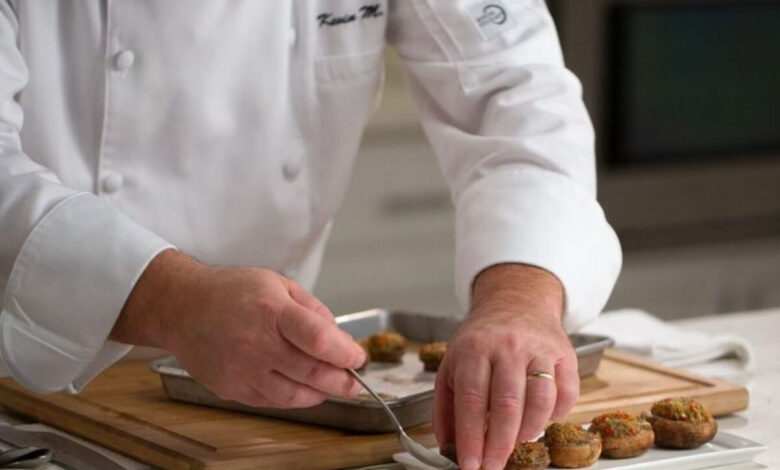Why Hybrid (Online + In-Person) Baking Courses Are Booming

With the advent of technology and changing lifestyles, the traditional classroom setting for learning new skills is continually being reimagined. This transformation is vividly observed in the realm of culinary education, where a growing number of students are opting for a blend of online and in-person baking courses. This hybrid model of education is not only convenient but also caters to a wider audience with varied learning preferences.
The Rise of Hybrid Baking Courses
Baking is an art form that demands both theoretical knowledge and practical skills. Hybrid baking courses merge the flexibility of online instruction with hands-on sessions that reinforce learning. These courses allow students the freedom to study at their own pace and review materials as needed before bringing their skills to life in a kitchen setting.
The popularity of such hybrid courses has increased exponentially, especially since they offer a versatile learning framework. Participants who may not be able to attend regular in-person classes due to geographical or time constraints now have the opportunity to pursue their passion for baking without compromising on the quality of their education.
Benefits of Hybrid Learning in Baking
Hybrid baking courses are designed to maximise the learning experience by integrating the best aspects of both online and physical worlds. The convenience of accessing course materials online, paired with the invaluable experience of in-person sessions, equips students with a comprehensive understanding of baking techniques and practices.
Fledgling bakers can watch online demonstrations conducted by experienced chefs and replay them as many times as needed to fully grasp the techniques. Then, in the kitchen, these students can apply what they’ve learned, receiving immediate feedback from instructors. This experiential learning aspect is crucial in mastering the tactile nuances of baking.
Adjusting to Consumer Needs
One of the foremost reasons behind the boom in hybrid baking courses is the flexibility they offer. Many aspiring bakers have commitments that make attending daily classes challenging. Hybrid models provide an answer to these needs by allowing students to learn when it’s most convenient for them.
Moreover, such courses often come with community features, connecting students with peers and mentors. This networking aspect is invaluable, providing both support and opportunities to collaborate outside traditional classroom boundaries.
The Impact of Hybrid Courses on Baking Businesses
Baking businesses, like DeLovely Cake Design, understand that ongoing education is crucial to staying ahead in the culinary industry. By offering hybrid courses, these establishments not only showcase their expertise but also attract a customer base interested in learning the craft.
Such businesses often operate as a cake shop in Chatswood while also running educational programs. This dual approach allows them to maintain a direct connection with their customers and share their passion for baking with community members who may also become future clients.
Furthermore, proficient students from these courses could be potential employees, equipped with the company’s baking philosophy and standards. It’s a strategic, symbiotic relationship where education becomes a bridge connecting the business with the community.
From Baking Classes to Custom Creations
For many students, these classes are more than just a learning opportunity; they’re a stepping stone to starting their own baking journeys. Hybrid models enable students to not only learn baking but also explore the creative aspect of crafting custom cakes in Sydney or wherever they may be based.
This kind of course setup empowers students with the skill set required to create specialised and personalised designs, often drawing inspiration from the creativity demonstrated by their instructors. By combining the best of both worlds – digital convenience and real-world application – hybrid baking courses allow learners to develop an in-depth approach to the artistry of baking.
Adapting to a Digital World
In today’s digital age, the significance of incorporating online elements into any educational program cannot be overstated. Hybrid baking courses harness the power of digital tools to create a fluid and interactive e-learning environment which complements the hands-on, sensory experience acquired in the kitchen.
This digital integration appeals to the modern learner who is accustomed to consuming content online, whether it’s through tutorials, webinars, or interactive platforms. The ability to tap into vast online resources means that hybrid courses can offer an up-to-date curriculum that responds quickly to industry trends and changes.
Customisation and Personal Learning Paths
Another advantage of hybrid baking courses is the ability to customise learning pathways. Since every student has unique needs, learning paces, and goals, the flexibility of combining online resources with personalised attention from in-person instructors is a game-changer.
Students may choose to delve deeper into certain topics online or spend additional time mastering complex baking techniques in the kitchen. This tailored educational approach results in a more enriched learning experience and a better overall retention of knowledge and skills.
Sustainability and Accessibility
Hybrid courses also play a role in supporting sustainability by reducing the need for travel and paper-based resources. Digital course materials and online communications minimise the carbon footprint traditionally associated with education.
Additionally, hybrid courses increase accessibility to a wider audience, including those with disabilities or those living in remote locations who might find in-person attendance challenging. This democratisation of education ensures that more individuals have the chance to pursue their passion for baking.
The Future of Culinary Education
With the trend towards hybrid courses well underway, the future of culinary education looks promising. This model aligns perfectly with a world that’s rapidly moving towards a more flexible, customised, and accessible model of education and skill acquisition.
As more culinary institutions adopt hybrid approaches, we are likely to witness continued innovation within the space, harmonising traditional techniques with modern technology to train the next generation of bakers.
In conclusion, hybrid baking courses are more than just a trend; they signify an evolution in culinary education, providing greater access, flexibility, and opportunities for aspirants across the globe. These courses offer an integrated pathway to mastering baking—an art that delights the senses and brings joy to creators and consumers alike.




